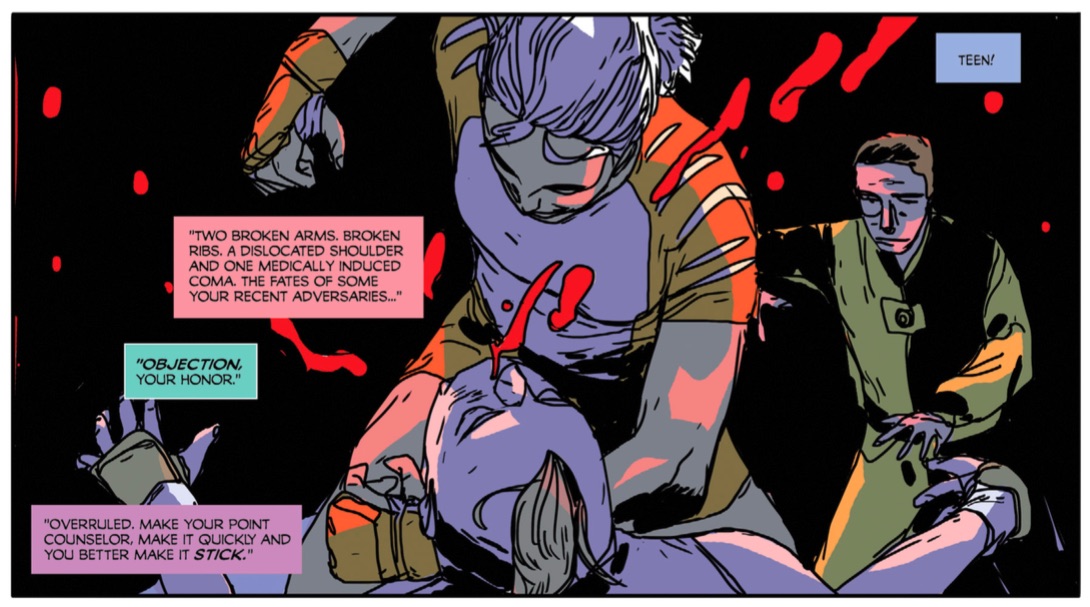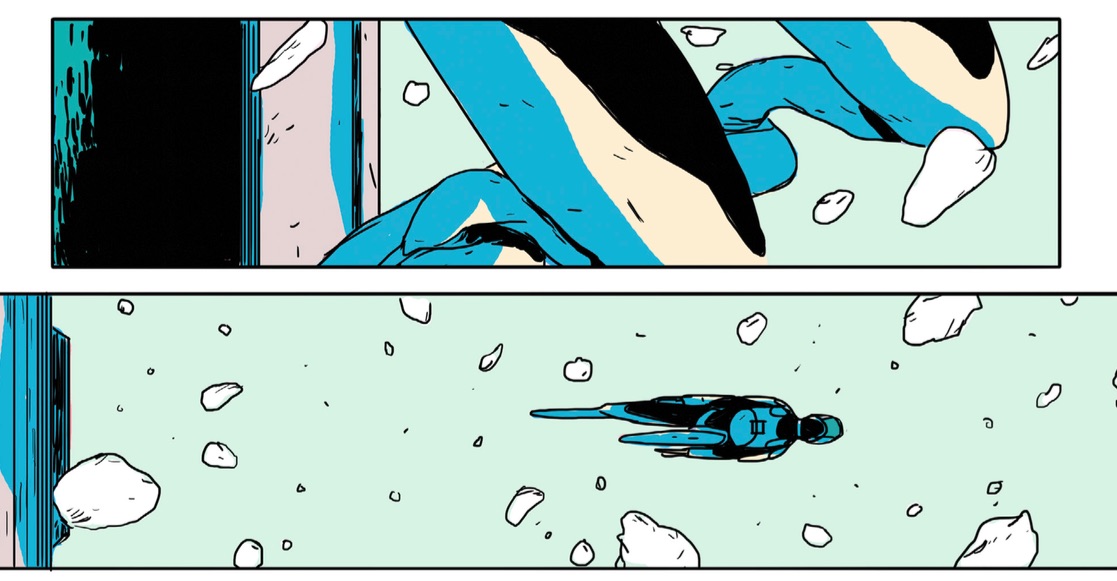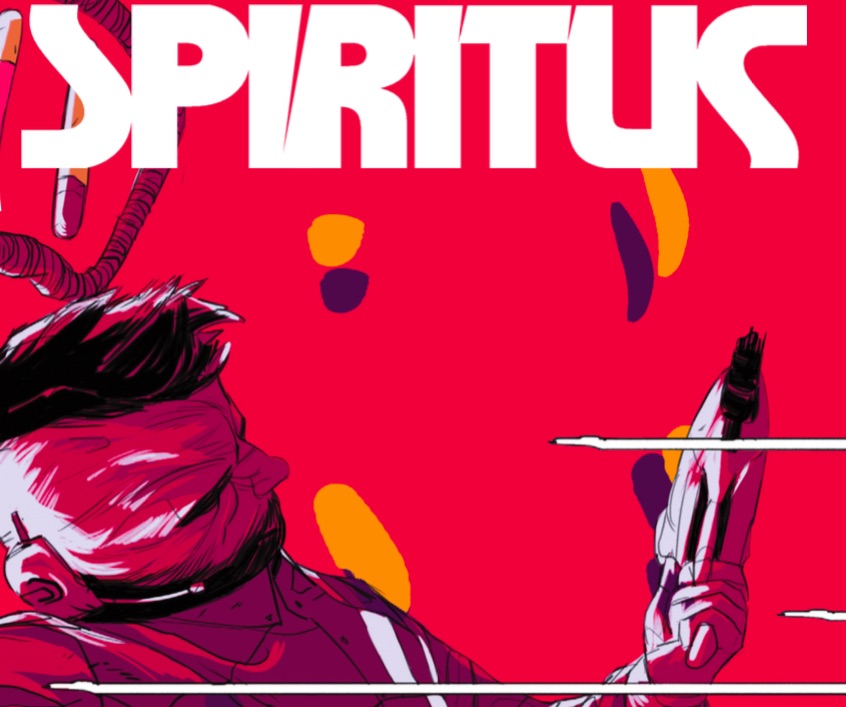(By Tim Daniel and Michael Kennedy, letters by Lauren Norby)
Corporal punishment only exacts its retribution as long as the body and consciousness remain coupled to receive it. When corporal becomes capital punishment, the body expires, and the mind is freed from its physical constraints (give or take certain theological beliefs, of course). But in the world of Spiritus, the justice system has found a way to close this loophole.
Falsely accused of murdering her husband, champion fighter Kinju Dayal was sentenced to have her consciousness transferred to a slave labor machine, a twist on corporal punishment that is so extreme, the body itself is destroyed while the mind remains shackled to the sentence in perpetuity. But Kinju is given a clandestine opportunity to have her consciousness transferred to a machine that has been unlocked, giving her the chance to fight for her freedom. In Spiritus #2, that struggle begins.

Tim Daniel weaves past and present into the opening pages, using Kinju’s own disorienting experience of reality closing in on memory as a method of aligning the reader to her perspective. A particularly nice transitional scene that takes the story from an interior narrative to an external one is an homage to Tommy Lee Jones and Harrison Ford’s famous scene in The Fugitive. “I ran because I did not kill my husband,” Kaiju thinks, before leaping out of an access portal high above a gorge, pursued by agents. The relentless chase that ensues is thrilling, and leaves Kaiju in a place that will surely have readers eagerly awaiting the next issue.
The artwork by Michael Kennedy calls to mind the biomorphic abstraction of Joan Miró, and the kinetic surrealism of Alexander Calder. This adds a particularly meaningful referential layer to a story that is, so far, essentially about the interplay between the organic and the mechanical. Tight perspectives at first glance appear to be nothing more than a cacophony of linework and color, only to shift into recognizable narrative shapes and compositions as the eye lingers.

Bodies may be organic machines, but in Spiritus, machines are not bodies, and Kennedy’s android design for Kinju is not instantly recognizable as a vessel of a conscious human mind. It’s a powerful choice from a world-building and character perspective, reminding readers of Kinju’s predicament using shapes and colors that reference but do not precisely render a human being.
Lettering and color can be easily overlooked as storytelling components, but in Spiritus they pull a lot of weight. Letterer Lauren Norby makes smart decisions about the shape, color, and placement of speech bubbles that work well within Kennedy’s brisk compositions and tether Daniel’s dialogue to the story even in challenging moments, like when the character speaking is off-panel, or internal-monologuing isn’t directly describing the pictured scene.

Color similarly guides the reader through the story. Kennedy shifts the palettes to move through the geography of the narrative. Neon-lit flashbacks give way to a muted, washed-out landscape as Kinju races across the wasteland, arriving at a destination made tense and claustrophobic with swathes of scarlet.
Spiritus is perfect for hard sci-fi fans, art lovers, and anyone interested in innovative world-building and visual storytelling. With only two issues out, it’s easy to get caught up and ready for whatever is next for Kinju. Who can she trust? Who can trust her? Whatever the answers to those questions, readers can trust that this is another great title from Vault Comics.
Tia Vasiliou is a digital editor at comiXology and co-host of the weekly ComiXologist Live show. She talks a lot about art and comics on Twitter @PortraitofMmeX.
(images: Vault Comics)
Want more stories like this? Become a subscriber and support the site!
—The Mary Sue has a strict comment policy that forbids, but is not limited to, personal insults toward anyone, hate speech, and trolling.—









Published: Sep 13, 2017 12:59 pm